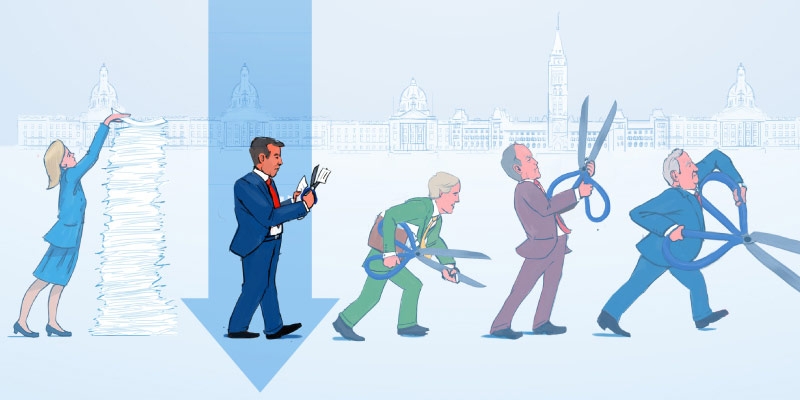What’s Changed, By How Much, and What Remains to be Done: An Analysis of Alberta’s Budget
— Publié le 5, December, 2019

Summary
- Since 2008/09, Alberta has run a nearly uninterrupted string of budget deficits. This bulletin analyzes the recently tabled 2019 Alberta budget to assess the extent to which it represents a change of course from the policy approach that has prevailed in in recent years.
- We find that with the 2019 budget, the trajectory of government spending and the strategy for deficit reduction do represent a change in policy direction. Whereas nominal program was previously growing every year, the new budget forecasts nominal spending reductions in the years ahead.
- Partly as a result of this change in approach, the government now forecasts that it will return to balance one year faster than under the pre-existing fiscal plan and accumulate less debt in the interim.
- However, from a historical perspective, the spending reductions planned in Budget 2019 are substantially lower than those introduced in the 1990s by the governments of Roy Romanow, Jean Chretien, and Ralph Klein.
- The four-year time horizon to budget balance does contain risks; historically, successful efforts to eliminate large deficits in Canada have taken place over two or three years. Further, Budget 2019 does not go very far in restoring Alberta’s tax competitiveness, and though the province plans to reduce its reliance on resource revenue, the 2019 budget is only a first step in getting the province off the resource revenue “rollercoaster.”




